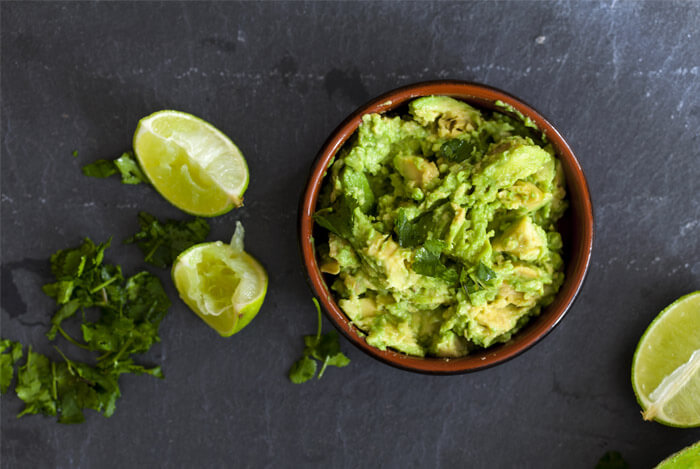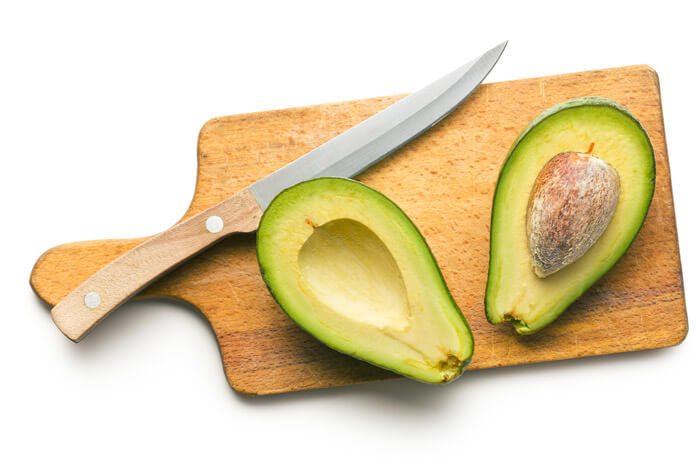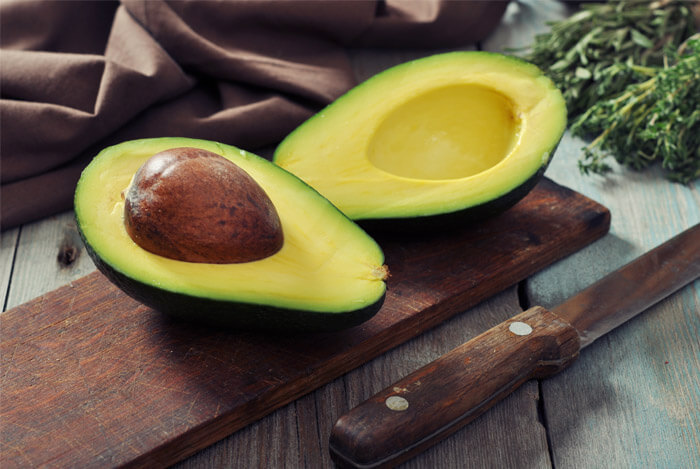When I first started eating avocados, my go-to was fresh, homemade guacamole. The flavors are so mouthwatering I can eat the stuff by the gallon. But after some time, I realized that avocados are much more versatile than just being a topping for my taco nights or a substitute for mayo on my sandwiches.
As I started exploring and stepping up my avocado game, I quickly found out that avocados, just like eggs, seem to have gained a bad reputation. Sure, they’re high in fat and people always equate high fat with high cholesterol, but you cannot deny the fact that avocados are truly a superfood.
With so much confusion regarding whether avocados are really healthy for you, I decided to do some research to see what the science could teach me.
In today’s post, I’ll not only explore the benefits of eating avocados, but I’ll also show you the perfect amount to eat without going overboard.
- Benefits of Eating Avocados
- Nutritional Breakdown of Avocados & Recommended Serving Size
Table of Contents
+Benefits of Eating Avocados
Help with Weight Loss

Despite being high in fat, healthy ones I might add, avocados are actually excellent for weight loss. For starters, avocados are nutritionally dense. They are made of roughly 72% water and almost 7% dietary fiber, which are two essentials when it comes to weight loss.
Fiber and water tend to keep you more satisfied, and cut down on snacking later in the day.
So by adding avocado to your lunch, you could be preventing those pesky afternoon snack cravings that tend to derail weight loss efforts.
Not only will the fiber found in avocados help you lose weight, but it will also help improve your digestion.
Improves Digestion

The fiber found in avocados absorbs water and increases the bulk of your stool, which can help prevent you from becoming backed up or constipated.
So if you’ve been troubled with constipation or backed up recently, you may want to add half an avocado to your meals. It can be the perfect natural remedy without giving you harmful side effects.
Lowers Cholesterol Levels

One study explored the effects of adding avocado to the diets of 45 overweight or obese Americans, who were considered to have healthy blood pressure and cholesterol levels.
The idea was to compare the effects of three diets: one that was low fat and did not include avocados, one that was moderate fat that also lacked avocado, and one that included an avocado each day combined with a moderate fat diet.
The article pointed out that the moderate fat diets were made to resemble the amount of fat found in a typical American diet (roughly 33% of the calories came from fat), while the low fat diet aimed to have about 24% of calories coming from fat. Individuals stayed on their diet for a period of five weeks.
As a result, no one in the study actually lost weight, however, there was a significant change in their LDL, or bad cholesterol levels. The most significant changes occurred in those who ate one avocado each day: a 10% decrease to be exact.
How did the other diets fare?
The moderate fat & low fat group who did not eat avocados saw about a 5% decrease.
As you can see, by making a simple change, like adding just one avocado to your daily meal plans, you may be able to improve your overall cholesterol levels in a natural, medicine-free way.
The next benefit of eating avocados is a lesser-known fact that even surprised me. Did you know avocados can also help improve the health of your eyes?
Eye Protection

Most people, including me at one point, associate having good or bad vision as a direct reflection of eye health. However, this just isn’t the case. You should not assume that you have good eye health just because you have good vision.
That’s why it’s always a smart idea to keep those eyes of yours as healthy as possible, and the great news is that avocados can help you out.
Avocados can help you absorb the nutrients like carotenoids – alpha, beta, and lutein, all of which are essential for healthy eyes.
So to keep your eyes healthy, you can’t go wrong with adding some avocados to your diet.
However, protecting your eyes from things like cataracts is only the beginning. Avocados have also been studied for their effects on cancer prevention, all because of those same carotenoids that help keep your eyes healthy.
Cancer Prevention & Chemotherapy Relief

When it comes to avocados and cancer, there are a variety of nutrients found inside these green fruits that can help prevent the growth and spread of cancerous cells.
The following ingredients found in avocados have been studied for their cancer preventing properties:
- Carotenoids: “Inhibits the growth of prostate, breast, head and oral cancers”
- Vitamin E, lutein, and oleic ocid: Reduce the rate of breast cancer
But those aren’t the only nutrients paving the way.
In one study published in the US National Library of Medicine, researchers explored the phytonutrients found in avocados as they relate to preventing the growth and death of cancer cells in patients undergoing chemotherapy. This time, methanol, an ingredient found in avocado, was studied.
Participants were given a dose of 100 mg, 150 mg, or 200 mg of a methanol extract and were monitored. Those individuals given the 200 mg dose saw the most promising results and the study was able to conclude that, “phytochemicals from the avocado fruit can be utilized for making active chemoprotective ingredients(s) for lowering the side effects of chemotherapy like cyclophosphamide in cancer therapy”.
One more study published in Cancer Research found that certain ingredients in avocados actually combat the stem cells of those suffering from acute myeloid leukemia, or AML. AML can be deadly in those over 65 and can spread in a time frame of less than 5 years. It’s an aggressive form of cancer that can be slowed down with the help of avocados.
That’s pretty impressive for such an unassuming fruit.
According to an article in Time that interviewed Professor Paul Spagnula, a researcher from the University of Waterloo, “The stem cell is really the cell that drives the disease…it’s largely responsible for the disease developing and it’s the reason why so many patients with leukemia relapse”.
As you can see, eating something as simple as an avocado can do wonders for your health. In fact, avocados can also help prevent things like osteoporosis too.
Prevents Osteoporosis

According to Save Our Bones, you’ll find the following bone health benefits from eating avocados:
- Osteoclast production which removes old bone deposits to make way for new ones
- Vitamin D helps prevent fractures
- Improved collagen production for healthy bones and cartilage
- Boron for bone metabolism and reduction in urinary calcium and magnesium excretion
Thanks to the collagen and copper found in avocados, you can also find a bit of arthritis relief.
Nutritional Breakdown of Avocados & Recommended Serving Size

Here is the nutritional breakdown for a one ounce serving of avocado.
In a single 1 oz serving, you’ll find:
- 45 calories
- 4 g of fat
- 30 mg of omega-3 fatty acids
- 473 mg omega-6 fatty acids
- Vitamin A – 1% of RDV
- Vitamin C – 5%
- Vitamin K – 7%
- Vitamin E – 3%
- Vitamin B6 – 4%
- Folate – 6%
- Iron – 1%
- Manganese – 2%
- Copper – 3%
- Magnesium – 2%
- Potassium – 4%
- Zinc – 1%
It’s important to note that a single, 1 oz portion will yield anywhere from two to three slices, depending on the size of the avocado. For these numbers, we’re assuming the avocado is about medium sized.
Now comes the big question: How many avocados should you eat?
As with most things involving nutrition, that all depends. Factors such as your age, gender, height, weight, current medical conditions, and family history will all play a role in how much fat and calories your body needs each day.
However, as a general rule of thumb, I’d stick with eating one to two servings, which is anywhere from 2-5 slices, of avocado about 2-4 times per week at most. This serving size will give you just enough of the health benefits without spoiling your weight loss efforts. Again, this is not a hard rule and may need to be adjusted to meet your specific needs.
Similar to my article about eggs, I hope you’ll see that the health benefits of eating avocado outweigh the old school way of thinking that ‘avocados are too high in fat’. After all, you wouldn’t want to miss out on all the amazingly health benefits packed into this delicious fruit.
What’s your take on how much avocado to eat daily? Have anything else you’d like to share? Let me know in the comments below!
Scientific References +
- Kimmel, G. J., Dane, M., Heiser, L. M., Altrock, P. M., & Andor, N. (2020). Integrating mathematical modeling with high throughput imaging explains how polyploid populations behave in nutrient-sparse environments. Cancer Research, canres.1231.2020. https://doi.org/10.1158/0008-5472.can-20-1231
- Lee, E. A., Angka, L., Rota, S. G., Hanlon, T., Mitchell, A., Hurren, R., Wang, X. M., Gronda, M., Boyaci, E., Bojko, B., Minden, M., Sriskanthadevan, S., Datti, A., Wrana, J. L., Edginton, A., Pawliszyn, J., Joseph, J. W., Quadrilatero, J., Schimmer, A. D., & Spagnuolo, P. A. (2015). Targeting mitochondria with avocatin B induces selective leukemia cell death. Cancer Research, 75(12), 2478–2488. https://doi.org/10.1158/0008-5472.CAN-14-2676
- Ding, H., Chin, Y. W., Kinghorn, A. D., & D’Ambrosio, S. M. (2007). Chemopreventive characteristics of avocado fruit. In Seminars in Cancer Biology (Vol. 17, Issue 5, pp. 386–394). https://doi.org/10.1016/j.semcancer.2007.04.003
- Dreher, M. L., & Davenport, A. J. (2013). Hass Avocado Composition and Potential Health Effects. Critical Reviews in Food Science and Nutrition, 53(7), 738–750. https://doi.org/10.1080/10408398.2011.556759










